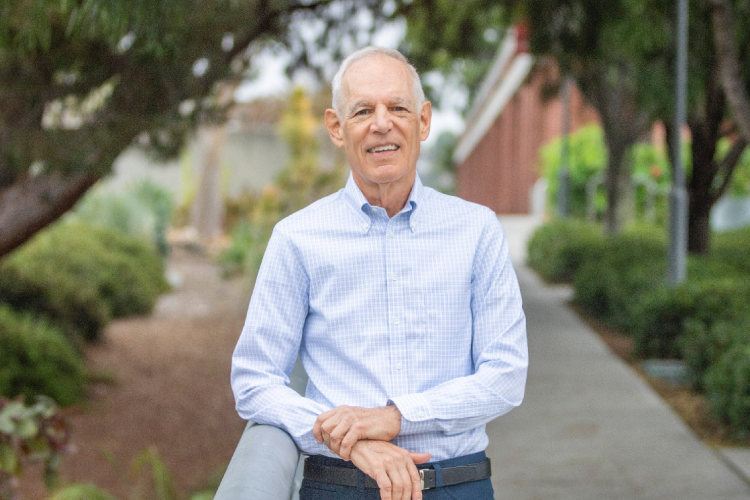October 8, 2020
Reborn of Crisis: 9/11 and the Resurgent Superhero
How Mesa’s Michael Harrison Turned Comic-Con into Research
By Jennifer Nichols Kearns // Office of Communications
Add writing a book to Professor Michael Harrison’s impressive list of activities and
interests. Most people at Mesa College know him as a Spanish Professor, a member of
the LGBTQ+ Task Force, the Co-Advisor for the Mesa Gender-Sexuality Alliance and even
as a tenor with the San Diego Gay Men’s Chorus. In his “spare time” though, he is
a comic book fan. Really. Since forever. And, he loves superheroes in comics. And
Comic-Con. Just ask him. His face will light up.
When he was in graduate school studying literature and working on his dissertation
on LGBTQ+ comics from Spain, he came across something he found both personally and
professionally interesting: academics who were beginning to study superhero comics
and films as representative figures of a variety of aspects of American culture. After
graduate school, Michael met political scientist Annika Hagley when they both started
teaching together and soon discovered a mutual interest in the shift of how comic
book heroes were being portrayed in post 9/11 America.
According to Harrison, this project was born of two general education classes in which
the superhero served as the window into several critical fields of inquiry such as
race, feminism, nationalism, queer theory, assimilation, ethics, philosophy of good
and evil, identity and conflict and as a means of teaching critical theory: often
a complex and daunting task to tackle at the undergraduate level.
In 2014, Harrison and Hagley wrote an article on the Avengers that was published in PS: The Journal of Political Science and Politics.
Shortly thereafter, several major political science blogs and websites asked them
to contribute pieces, including the United States Center on American Politics and
Policy.
on the Avengers that was published in PS: The Journal of Political Science and Politics.
Shortly thereafter, several major political science blogs and websites asked them
to contribute pieces, including the United States Center on American Politics and
Policy.
In that blog, they focused on The Avengers, and they write that each character in
the multi-billion-dollar film franchise represents a distinct identity or behavior
with which the United States has been struggling to reconcile itself, while collectively
the film series represents the reactions of a nation to a direct, domestic attack.
The Journal article, blogs and subsequent conference presentations served as the inspiration
for the book.

“In this book, we position post 9/11 superheroes as an analytical framework through
which to view important questions of government authority, patriotism, war, morals,
race, gender, marginalized identities, surveillance, the military industrial complex,
and American political and social identities formed over time in response to the terrorist
attacks,” states Harrison. “We find that post 9/11 superheroes were, at first, resurrected
to appeal to the dominant rhetoric of war and retribution but, as space was created
between the immediacy of the attacks and the American pop culture machine, the superhero
genre was one of the few areas in which a more radical and introspective examination
of American life was given room to breathe.”
Harrison and Hagley believed that the nation’s obsessive retelling of 9/11 both at
the individual level and the level of mass consciousness speaks to an interest in
the day itself and the aftermath which will perhaps, never be satisfied. By taking
a recognized cultural trope (superheroes) and using it to discuss serious questions
about America, both as it healed from the immediacy of the attacks and in the long
term aftermath, they are presenting an argument that would be engaging to anybody
who is interested in psychology, the media, superheroes in general, politics and the
importance of storytelling and myth in society.
In exploring topics such as gender, race, and LGBTQ identity through the lens of superhero
films among other topics, Harrison and Hagley hope to provide a means for individuals
to better understand themselves and their place in 21st century society, as well as
understand the myriad of issues that impact their family, friends, neighbors and others
who might belong a group or groups distinct from their own.
To learn more about Mesa College, visit www.sdmesa.edu.
Find Reborn of Crisis: 9/11 and the Resurgent Superhero.
Tags: Michael Harrison, Spanish, Superheroes, Gender-Sexuality Alliance






 on the Avengers that was published in PS: The Journal of Political Science and Politics.
Shortly thereafter, several major political science blogs and websites asked them
to contribute pieces, including the United States Center on American Politics and
Policy.
on the Avengers that was published in PS: The Journal of Political Science and Politics.
Shortly thereafter, several major political science blogs and websites asked them
to contribute pieces, including the United States Center on American Politics and
Policy.





